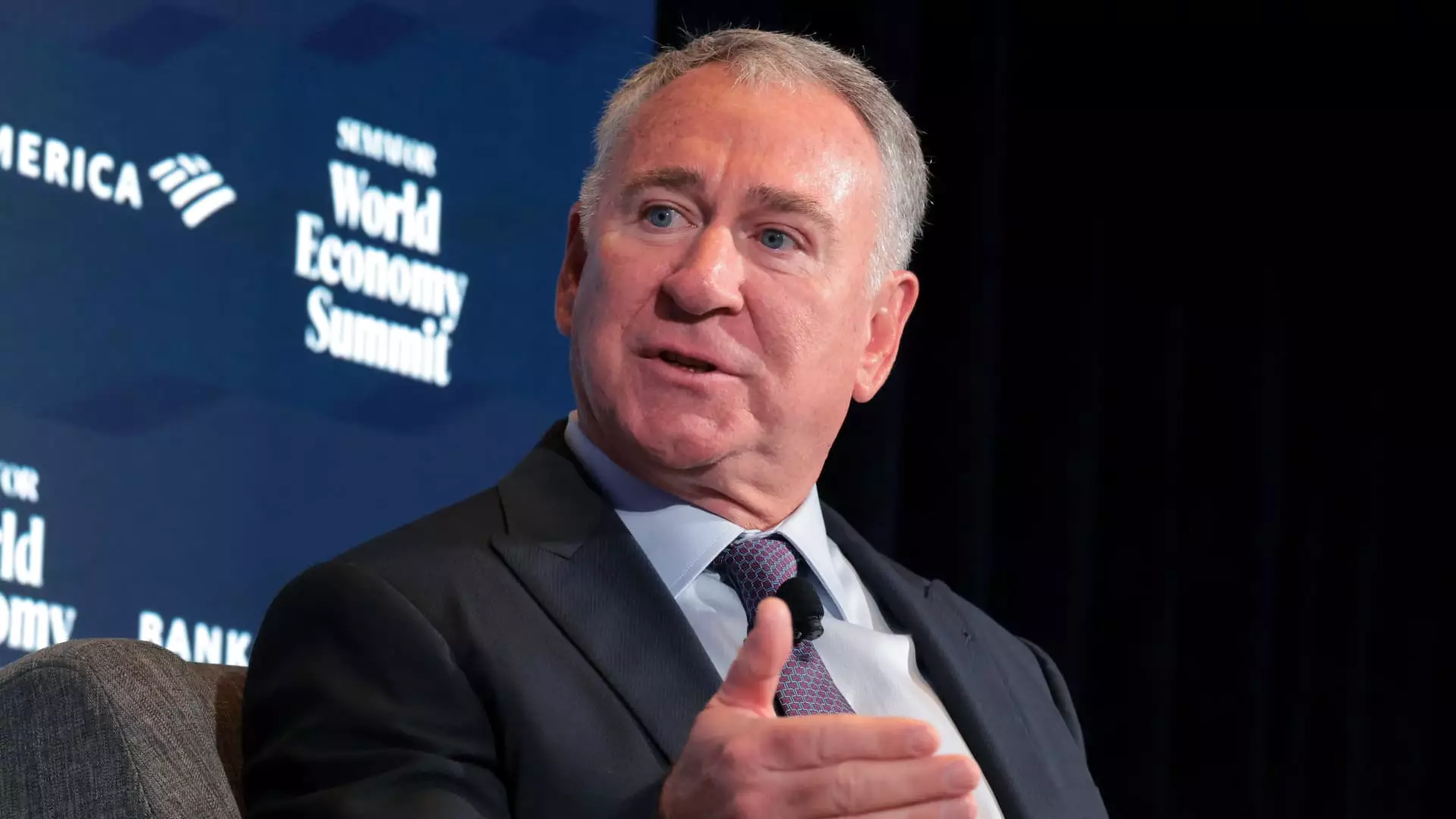In the current global landscape, the reputation of a nation is intricately tied to its economic policies and diplomatic maneuvers. Ken Griffin, the bold founder of Citadel, eloquently highlighted this dilemma at Semafor’s World Economy Summit, where he cautioningly warned that President Trump’s aggressive trade tactics are not just a fiscal issue; they’re a matter of national identity. As Griffin articulated, the United States has always represented more than its geographical boundaries. It’s a universal emblem of aspiration, culture, and financial clout. The erosion of this brand—through abrupt policy shifts and protectionist strategies—signals a potentially devastating retreat from the ideals that have long distinguished the nation on the world stage. By engaging in a trade war that adds tariffs to imports, Trump is crippling a brand that empowered investor confidence globally.
The Backlash from Financial Markets
Griffin’s remarks come at a pivotal time when the consequences of these aggressive trade policies are becoming alarmingly apparent. Following the announcement of tariffs, Wall Street reacted with unexpected volatility, showcasing a rift in investor sentiment. The instability is further compounded by the president’s sudden decision to pause most tariffs—a move that feels more like political maneuvering than a genuine strategy. Such unpredictability sends ripples of uncertainty through markets, as illustrated by the rising Treasury yields and a weaker U.S. dollar. Investors, once drawn to America as the steadfast beacon in turbulent times, are now reevaluating their faith in the nation’s economic solidity. The U.S. Treasury market—long held as the gold standard for safety—now faces the grim prospect of diminished trust.
Reflecting on the Trump Brand
Interestingly, Griffin, despite his previous endorsements for Trump, has not shied away from voicing his criticism regarding the administration’s trade policies. This dichotomy points to a troubling trend within American economic politics: how even the staunchest allies can turn against policies they perceive as damaging. Griffin’s disdain for what he terms Trump’s “bombastic” rhetoric underscores a deeper concern shared by many—namely, that the message America sends encapsulates its global standing. The notion that the Treasury brand, emblematic of security and wealth, is now at risk underlines a larger narrative about how political leadership fundamentally shapes economic landscapes.
Tarnishing a Legacy
The ramifications of tarnishing the United States brand could last well beyond the Trump era. Griffin emphasizes the painstaking effort required to restore a damaged image, likening it to a lifetime of healing. The metaphor speaks volumes about the stakes involved, especially when other nations are quick to capitalize on perceived American weaknesses. A strong brand fosters trust, investment, and partnerships, while a tarnished brand invites suspicion and retreat.
As America grapples with its identity in the wake of such policies, it becomes imperative for leaders to recognize the broader implications their decisions carry. The challenge will be not only regaining lost ground but solidifying America’s place as a trusted partner in a world that looks to it for guidance and stability. The risk, as Griffin appropriately warns, is significant—a failure to act responsibly today could lead to profound long-term damage to the American experience and brand.

Leave a Reply